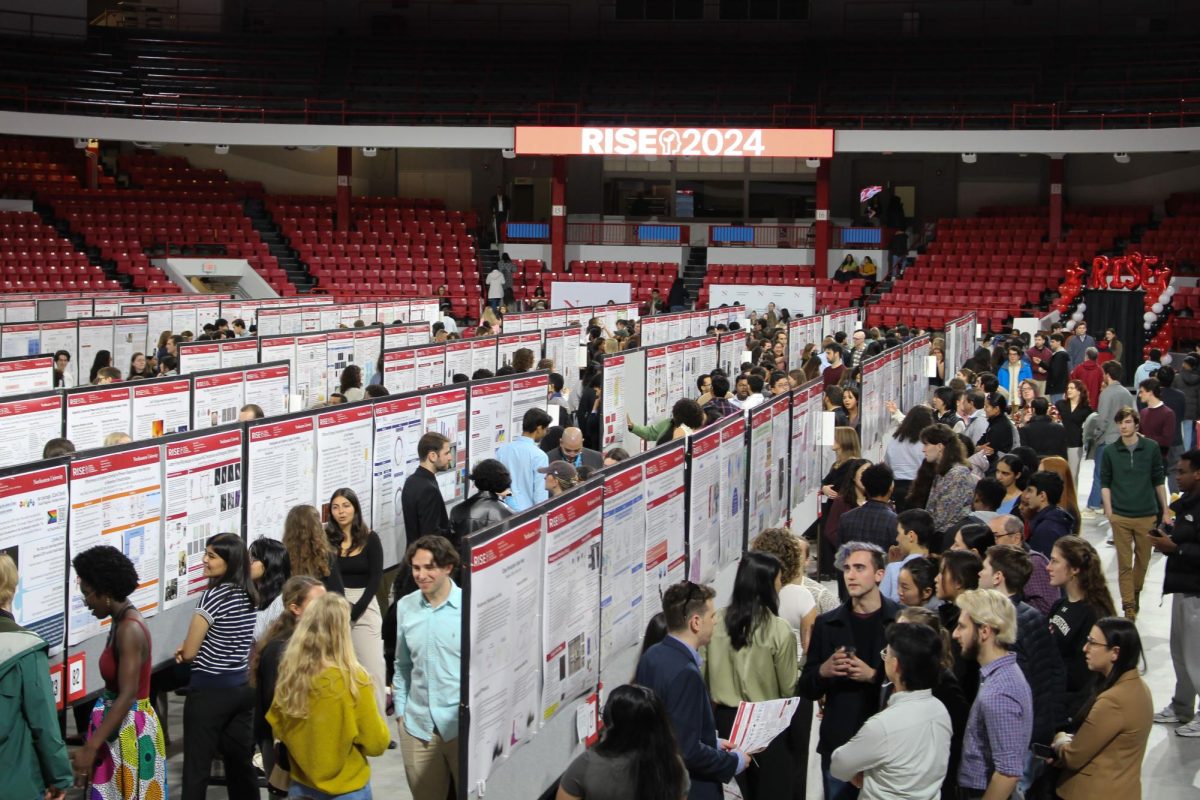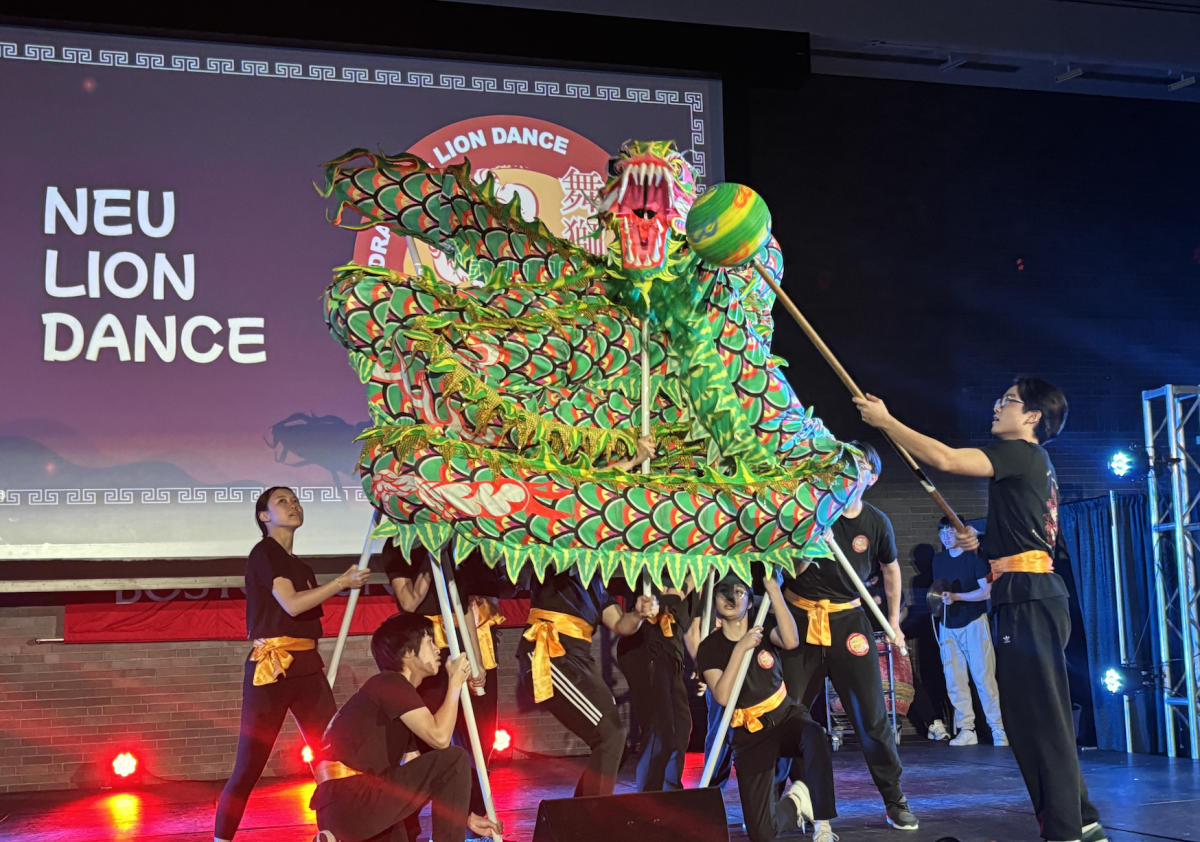“A dog trying to write a poem about why he barks,” read poet laureate Charles Simic from a podium in the Curry Student Center Ballroom. “That’s me, dear reader. They were about to kick me out of the library, but I warned them, my master is invisible and all-powerful.”
The Pulitzer Prize-winning poet spoke before an audience of more than 100 people Thursday afternoon as part of the English department’s annual Peter Burton Hanson Memorial Lecture. Reading from a series of poems written over nearly a half-century, Simic gave context to some of his most popular works – an insight he said doesn’t always come through in his poetry.
“A few years ago somebody asked me, ‘Are you a confessional poet?'” he said between readings. “I didn’t know what that meant. The whole point of poetry is to make things up. What attracted me to poetry was lying. You get to make things up.”
However, in his lecture, Simic revealed that although his poems aren’t often “confessional,” many are rooted in his experiences.
An early highlight was “Prodigy,” a poem about growing up in war-torn Yugoslavia in the 1940s and playing chess with neighborhood elders.
“Nothing can compensate being the age of eight or 10 and beating some old, smart-looking fellow at chess,” Simic said of the poem. “And there was a civil war – five or six factions fighting it out – and here I am in my glory playing chess.”
Simic was born in Belgrade in 1938 and immigrated to the United States when he was 16. He published his first poems in 1959 while living in New York City, where he resided until 1973. He currently lives in New Hampshire.
“A lot of my poems are about New Hampshire or New York City, and occasionally my childhood,” he said. “I can’t escape writing about the place I’m living.”
One of several examples came with “Butcher Shop,” which Simic wrote in his first years in New York’s Lower East Side and has since become one of his best-known early poems.
“Sometimes walking late at night I stop before a closed butcher shop,” he read. “There is a single light in the store, like the light in which the convict digs his tunnel.”
Later in his lecture, Simic moved from the biographical to the abstract, with poems like “Clocks of the Dead” and “Fork.”
“This strange thing must have crept right out of hell,” he read from “Fork.” “It resembles a bird’s foot, worn around a cannibal’s neck. As you hold it in your hand … it is possible to remember the rest of the bird, which like your fist is large, bald, beakless and blind.”
Simic concluded his lecture after about an hour of readings and briefly addressed audience questions. A book signing followed.
“Honestly, that was the first time I heard of him,” senior English major Grahame Turner said after the lecture. “It’s always good to hear what’s going on with poetry. Sometimes it feels like a dead art, but I come here and see it’s clearly not.”
In August, Simic was named the country’s 15th poet laureate, a post created by the Library of Congress in 1987 to serve “as the nation’s official lightening rod for the poetic impulse of Americans” and promote a “greater appreciation of the reading and writing of poetry.”
Sophomore English major Laura Boston said she thought Simic was worthy of the title.
“It was interesting because we could laugh with him, but he was also very personal,” she said. “I never felt like he was pretending. That’s hard to do – to be so simple and so meaningful.”












